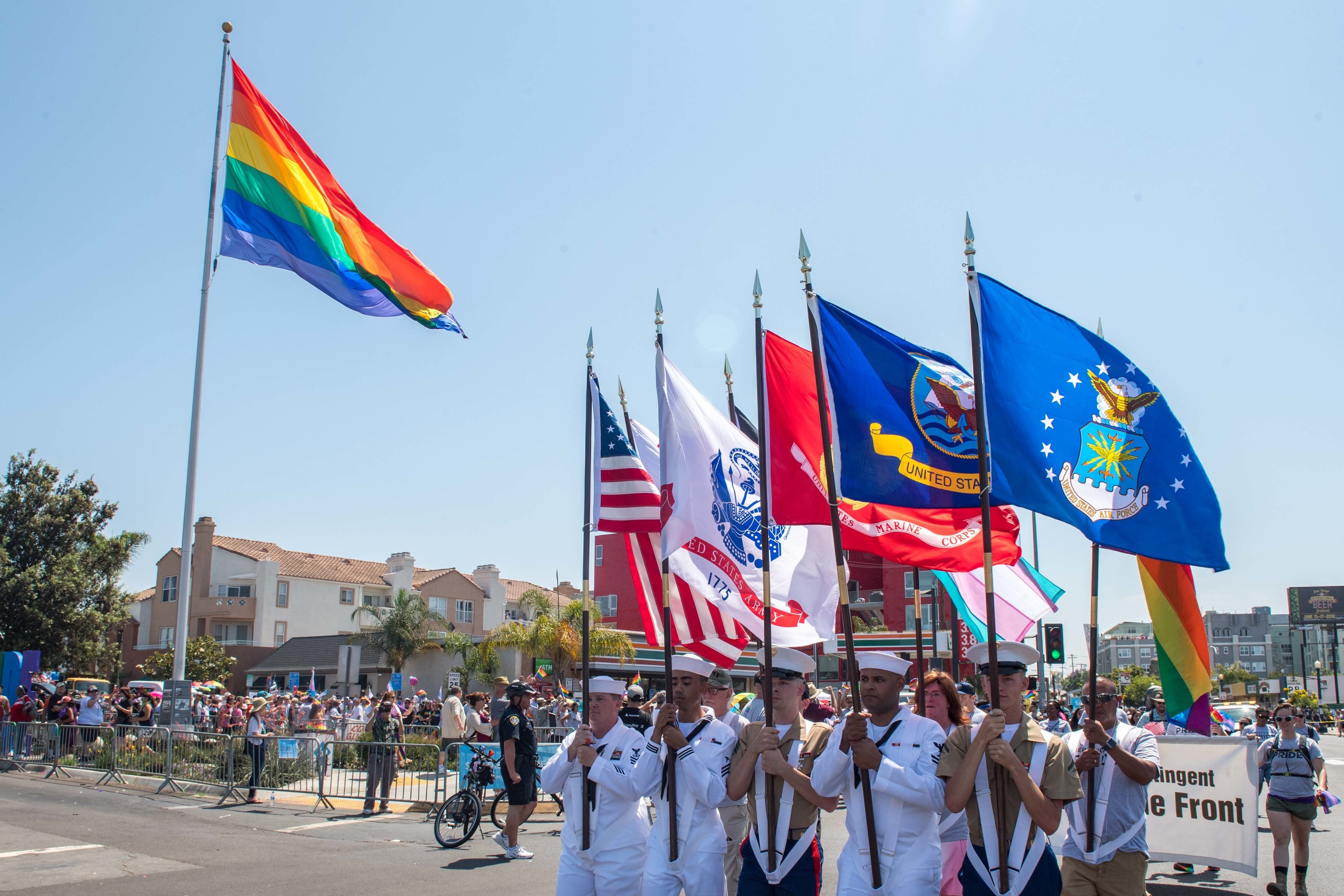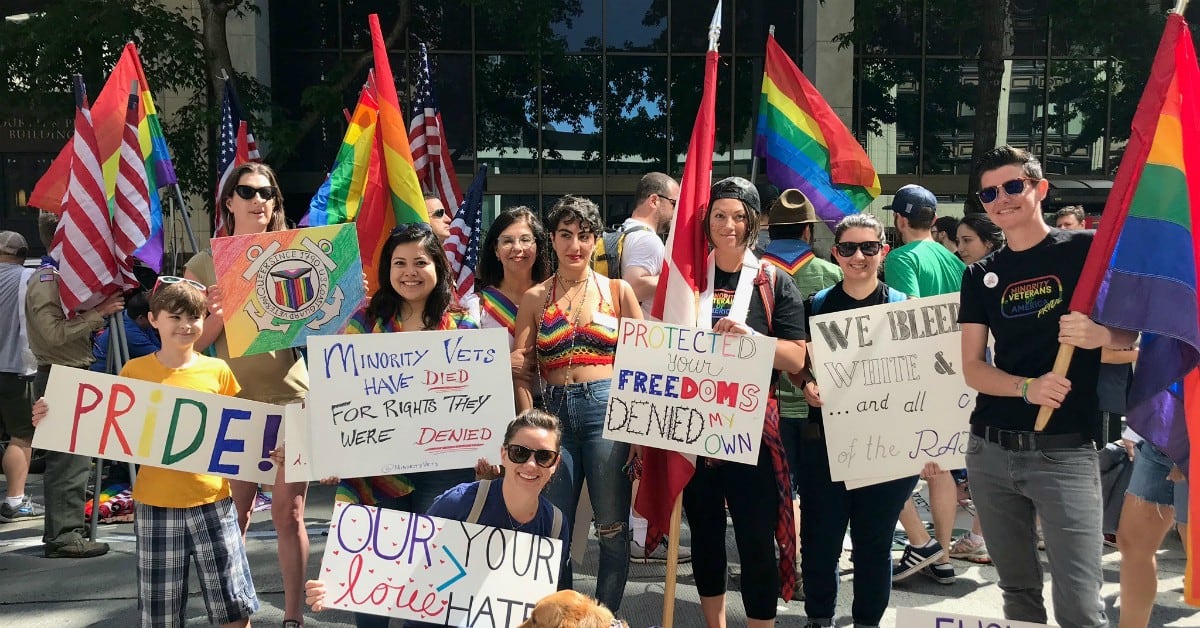A decade after the services first allowed gay and lesbian troops to serve openly, a report from the Joint Staff found that concerns about combat effectiveness and unit cohesion were basically unfounded.
That’s the conclusion of a 196-page document published in 2021 by the Joint History and Research Office, recently brought to light by the Palm Center, a think tank that studies U.S. military personnel policy.
“The Commandant said he had no regrets about opposing the change during wartime, explaining that he had felt obliged to set aside his personal opinions and represent the majority view held by combat Marines who worried that repeal might diminish their units’ cohesion and battlefield effectiveness,” the report states, citing comments by the Marine Corps’ then-top officer, Gen. Jim Amos. “In retrospect, although convinced that he had done what he needed to do at the time, Amos acknowledged that his concern was ‘misplaced.’ ”
Those sentiments were echoed two years later in a memo from Army Gen. Martin Dempsey, then the chairman of the Joint Chiefs of Staff, to Defense Secretary Leon Panetta.
RELATED

“Following the 1-year anniversary of repeal, the Combatant Commanders have provided their assessments of ‘Don’t Ask, Don’t Tell (DADT) and report no impact to military readiness, effectiveness, or unit cohesion of the Joint Force,” he wrote.
The study began in 2012, Joint Staff spokesman Joe Holstead told Military Times on Wednesday, in recognition of “the historical significance of the 2010 decision to repeal ‘don’t ask, don’t tell,’ ” and released ― but not publicized ― in April 2021.
“Time and again, opponents of equality have claimed that inclusion would harm America’s most important institutions and threaten the nation itself,” Aaron Belkin, the Palm Center’s director, said in a Sept. 19 statement. “And time and again, that’s turned out to be false. This official military study makes clear the yawning gap between fearmongering and reality, and should guide dialogue about similar claims in the present, such as fears that inclusion for transgender Americans is somehow a threat to our society.”
A week later, the Palm Center, whose research had focused largely on the integration of openly serving LGBTQ troops, announced that it would shut down Sept. 30.
“Few organizations figured out how to move the needle on military opinion so effectively as the Palm Center,” said Navy Adm. Mike Mullen, then-chairman of the Joint Chiefs, after the repeal of “don’t ask, don’t tell.”
“Its research and policy guidance were invaluable in showing that inclusive service was not complicated and would not harm readiness,” he said. “The Palm Center reframed the national conversation over LGBT military service, using facts and research to conclusively demonstrate that inclusion makes our armed forces, and our country, stronger.”
The 2021 report from the Joint Staff includes a detailed history of the conversation about allowing gay and lesbian troops to serve openly, including efforts in the early ‘80s, President Bill Clinton’s “don’t ask, don’t tell” policy in the ‘90s, and multiple congressional and judicial challenges to the policy in the years before its repeal.
While the service chiefs had differing opinions on whether openly serving gay and lesbian troops would affect readiness, everyone ultimately fell in line when it became clear that the Obama administration intended to change policy.
“The study’s cochairs also informed Secretary [Robert] Gates that individuals who had served with homosexuals in the past tended to be less pessimistic about serving with gay and lesbian personnel in the future than those who had not, and that respondents deployed to combat zones had predicted that the impact of repeal would actually be less during intense situations than during downtime at sea or in the field,” according to the report, citing an internal Pentagon study. “‘In the course of the review,’ the cochairs observed, ‘the military community has become more accustomed to the idea of repeal.’ ”
RELATED

Despite being allowed to serve, the repeal of DADT hasn’t gotten rid of the stigma of homosexuality for all service members.
A study published by the journal Sexuality Research and Social Policy in 2020 found that 59 percent of respondents did not feel comfortable being “out” at work, either because of fear of retaliation from their peers and leadership, or because they did not feel comfortable being a token demographic member responsible for educating their peers.
“Taken together, LGBT service members seek a military in which disclosure will not subject them to negative career repercussions, burden them with feelings of differentness or expectations to teach others how to treat them, limit their ability to access needed resources for themselves or their family, and, ultimately, that their physical and personal integrity will not be endangered,” the authors, both military and academic researchers, found.
Meghann Myers is the Pentagon bureau chief at Military Times. She covers operations, policy, personnel, leadership and other issues affecting service members.









